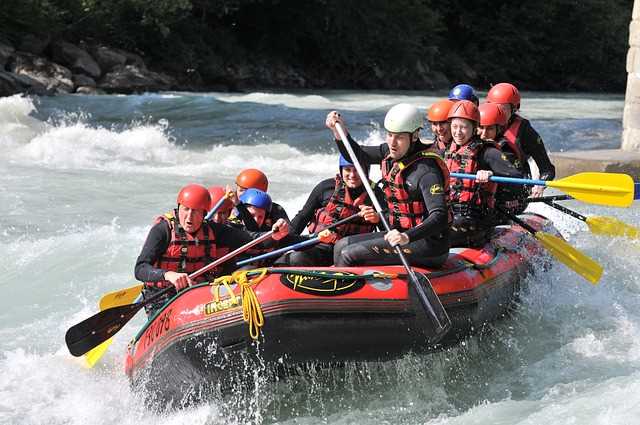12 Teamwork Skills for Your Resume in 2025
All products and services featured are independently selected by WikiJob. When you register or purchase through links on this page, we may earn a commission.
- What Do Employers Mean by Teamwork?
- 12 Examples of Teamwork Skills Employers Want to See in 2025
empty
empty
empty
empty
empty
empty
empty
empty
empty
empty
empty
empty
- What Hard Skills are Important for Teamwork?
- Why Are Teamwork Skills So Highly Valued?
- How to List Teamwork Skills on Your Resume
- How to Talk About Your Teamwork Skills at Interview
empty
empty
- Final Thoughts
When it comes to working in a team, not everyone’s cut out for it.
But the reality is, effective teamwork is one of the most vital competencies in most forms of employment and without them, companies tend to fail.
Even if your role seems highly independent and you perform most of it remotely or alone, you’ll still need to communicate with others about what you’ve done and understand why you’re doing it in the context of the organisation as a whole.
Because of this, hiring managers and recruiters will always test whether you have teamwork skills – and if you demonstrate a lack of these you are unlikely to be successful in your job search.
It is important to research the role thoroughly (a good way to do this is to carefully read the job description and look at the key requirements of the job) and identify the most important skills to highlight on your resume, cover letter and at the job interview.
Make sure you give concrete examples of how you have demonstrated those skills and achieved results.
What Do Employers Mean by Teamwork?
Generally, employers mean the ability to work amicably with fellow employees in all kinds of situations and with empathy.
Teamwork in essence requires not only people skills but also a sense of maturity, which allows the individual to think above petty misunderstandings that arise.
Teamwork involves helping other members of your team to achieve a common goal quickly and effectively. This does not mean that if you are in an interview you cannot use an example of you being a leader within a team.
In fact, this is highly recommended, as you can demonstrate your leadership skills, so long as you don't portray yourself as arrogant.
Teamwork ability is one of the competencies employers are most interested in.

12 Examples of Teamwork Skills Employers Want to See in 2025
Teamwork involves a whole set of soft skills that can’t easily be put under one heading. Below we’ve covered 12 different teamwork skill areas that are integral for a great team player.
1. Communication Skills
Team players need to be able to listen and communicate on both emotional and intellectual levels and in a professional manner.
Those who are effective at communication:
- Are able to explain their ideas
- Listen to others carefully and not always with an intent to reply (known as active listening)
- Make efforts to express what their feelings are without sounding threatening
- Try to sense or understand how others feel, based on what they are saying or by their body language
- Ask questions whenever they want clarification or are uncertain about something
- Often reflect on events and interactions that took place and how things could have gone better (they try to learn from bad experiences)
- Avoid creating tension between others, and try to break tension rather than build on it
2. Support Skills
Team members can show support for one another in various ways: congratulating others in moments of achievement or consoling in more trying times.
It helps to look at other members of your team as collaborators rather than competitors. A huge part of support is the ability to respect one another.
3. Problem-Solving Skills
Certain problem-solving skills, such as critical thinking, entail a level of wisdom and experience, whereas others are based on analytical prowess.
In all cases they are concerned with the capacity to assess a given situation and arrive at a positive outcome.
In the context of teamwork, problem-solving skills are valued because employees are expected to develop solutions as a team to situations that threaten to escalate into something potentially serious.
4. Listening and Feedback Skills
To ensure proper feedback is given in the different situations you are exposed to with fellow employees, it’s important to listen attentively.
Clarifying what other team members mean and taking interest in their problems demonstrates that you care about them and their development.
Feedback can of course also be delivered via email; some things are better said in written form. With time and exposure to different scenarios, one picks up on which feedback mechanism would probably work best.
5. Conflict Management Skills/Conflict Resolution
Conflict in the workplace is something all of us experience at some stage. How you deal with conflicts can potentially make or break your career.
Remember not to let your anger or frustration get the best of you. Ultimately you’re trying to reach a solution that benefits the team generally, even if it puts a few individual noses out of joint.
6. Rapport Building Skills
Nobody works entirely alone. No matter what position you hold, there will be times that you need to communicate with other staff members and potentially work as a team.
In these situations, it is important to be able to build rapport in order to help create a harmonious working environment.
This doesn’t have to mean that you are friends with everyone, however. After all, we all have people who we don’t particularly like on a personal level. But, being able to work alongside them professionally and without friction can help to ensure that tasks are completed with the minimum amount of stress and disruption.
7. Decision Making Skills
Decision making is a part of any job. It doesn’t matter whether you are applying for an entry-level position or a senior-executive role, you will need to be able to make decisions that contribute to team goals.
There will be times when it is important to be able to decide which steps are the right ones to take, and the ability to do this without relying on others can mean saving both time and money.
8. Delegation Skills
A successful workplace brings together people with a myriad of different skills in order to create the best possible products and services for their clients.
For those in positions of leadership, this process will also involve delegating tasks to those individuals who are best suited for them.
After all, some team members will bring the specific skills and strengths required to achieve the intended results.
In order to make this happen, you will need to have strong delegation skills and an ability to identify who the best person is for each individual role within a team or project.
To find out which jobs fit your personality best, visit our partner CareerFitter and take the Career Test for FREE.
9. Planning Skills
Whether it is planning out your time, planning how to approach a project or planning a new stockroom system, planning skills are a core part of many people’s skill set when it comes to working in a team.
The ability to plan effectively can save time, money and stress in the long-term.
A good planner will also be able to provide plans which others can follow without needing to provide a lot of explanation.
This is particularly useful within a team environment where others will have to complete their sections of a task or project within time limits and to a set brief.
Some other skills that contribute to good planning will include:
- Organizational skills
- Time management
- Resource management
- Measuring results
10. Persuasion Skills
When it comes to the skills needed in teamwork, persuasion is perhaps one which tends to be overlooked, but it is probably more relevant than you realise.
When you are working as a part of a team, there will be times when you have ideas which you know will work. However, it is possible that other members of your team might not see the same potential that you do or simply have stronger personalities and are used to having their ideas followed.
Possessing persuasion skills will mean that you are able to share your thoughts and ideas in a way which is respectful of others, but still gets your opinion across.
Those individuals who are particularly persuasive will find that their ideas are accepted and pursued more often.
11. Tolerance & Respect Skills
It doesn’t really matter what your job role is or how long you have been doing it, tolerance and respect are vital skills to possess.
Beint tolerant of others and respecting their opinions, even if you don’t personally agree with them, will help to ensure that you contribute to a peaceful and happy working environment.
If others know that you respect their thoughts and opinions they are also more likely to be willing to work with you, listen to your ideas and take action when the situation requires it.
12. Reliability Skills
All employers want employees who are reliable. This is even more important when it comes to working as a part of a team.
There could be aspects of a project in which other team members are relying on you. Ensuring that your tasks are completed and information passed on to the relevant parties at the right time will then mean that others are able to complete their own tasks.
What Hard Skills are Important for Teamwork?
Most of the skills that we have talked about in this article are known as soft skills (or interpersonal skills).
However, working in teams can require a whole host of technical and hard skills that are more easily assessed with proof of training or certification.
These may also be listed on the job description as essential to the role.
Here are some examples to look out for. If you are new to the sector or undertaking a career change, you may need to do some training in order to demonstrate these competencies.
- Project management software
- Communication software
- Collaboration software
- Productivity software
- Spreadsheet proficiency
- Certified management skills
Why Are Teamwork Skills So Highly Valued?
Largely because teamwork skills have a dual benefit: a harmonious office environment plus more effective work.
Teams that gel well are far more likely to impress clients, complete projects and seal deals. A company’s reputation often rests on how competent the teams in it are perceived to be.
How to List Teamwork Skills on Your Resume
Here is a step by step guide to listing teamwork skills on your resume and cover letter.
Step 1. Identify Which Teamwork Skills Are Most Important
It is vital to not only choose teamwork skills that you can easily demonstrate but to also only choose ones that are highly relevant to the role you are applying for.
Step 2. Give a Specific Scenario in Which You Demonstrated Your Skills
Never just list skills in a job application or when answering an interview question. Make sure you describe the situation, what you did and what result was achieved using specific examples.
Step 3. Show the Positive Impact You Made
Make sure each of your examples leads to an impact you had on the business or team’s success. If you can quantify that in numbers (you increased revenue by a certain percentage, for example), all the better!
Step 4. Make It About You
Although you are demonstrating teamwork skills, make sure you use examples where you can talk about an impact you yourself made.
The interviewer isn’t interested in hearing about the successes of other team members unless you contributed notably to that success.
Step 5. Make Yourself Stand Out
Highlight the most important skills in your resume objective at the top of your CV or in a dedicated skills section.
To show that you are the best person for the job, and to catch the attention of the recruiter, you should always tailor your resume to each job application.
Step 6. Keep CV Examples Short
When describing what you did and the outcome, keep to one short sentence. Expand on this in your cover letter.
How to Talk About Your Teamwork Skills at Interview
Questions on teamwork skills will vary depending on the competency that the interviewer is asking you to demonstrate, but for questions surrounding teamwork, you will always need to use the STAR technique.
This requires you to give an example of a situation during either your previous employment, education or extracurricular activities, explain what tasks you were faced with and how you overcame it.
Sample questions may include:
- What is your definition of a good team player?
- Do you consider yourself a good team player? Why or why not?
- Describe a situation where you were successful in getting people to work together effectively.
- A team member is annoying you on a daily basis and this is hampering your performance at work. How would you handle this situation?
- Describe a time when you were a member of a team and witnessed a conflict within the team. What did you do? What were the results? What could you have done better?
- What are some of your hobbies or extracurricular activities?
- Tell me about a time when you have had to modify yourself (or a way you did something) to take into account someone else's views.
- Tell me about a situation when you needed to offer constructive criticism to a friend or team member?
Timing
Many interviewees tend to either drag on with their answers, or make their answers too short due to nerves, meaning they miss out on key points or information relating to their answer.
Try to ensure that your answers are between three and five minutes long and include only the most relevant information to your ability to work successfully within a team.
Situation
Try to make sure the situation you were in when describing your answer is as unique and as relevant as possible. The best situations will include positions where you were the team leader and listened to the other team members, then used their information and feedback to help develop your own situation.
This will show that not only can you work in a team effectively, but also that you are willing to listen to the feedback of others to improve your own work, something which is often difficult for others.
Another useful scenario is one where you resolved a conflict with another team member. Ideally, this will show how you resolved the conflict professionally without letting your emotions get the better of you, and without involving HR to resolve the matter for you.
Final Thoughts
A lot of people tend to think that effective teamwork skills are only excelled at by extroverts.
While it may be true that extroverts can more easily mix with different people and verbally express themselves, in no way does this invalidate introverts. An introvert’s ability to listen, to empathise and to reflect also form an essential part of a team’s overall development and ability to thrive.
Teamwork skills can be mastered by all kinds of people, from all kinds of backgrounds, albeit some take longer than others. Teamwork skills are lifelong skills that need to be fine-tuned, improved and developed with experience.
If you are going to an interview that requires teamwork, WikiJob recommends practicing aptitude tests prior to it, which will help you develop other skills.






